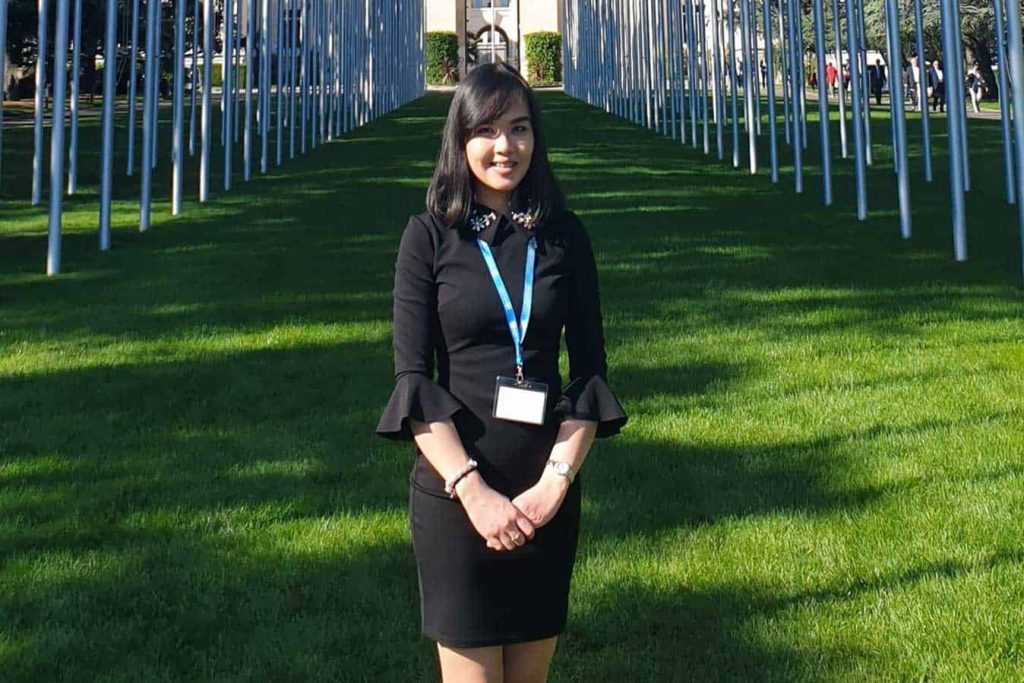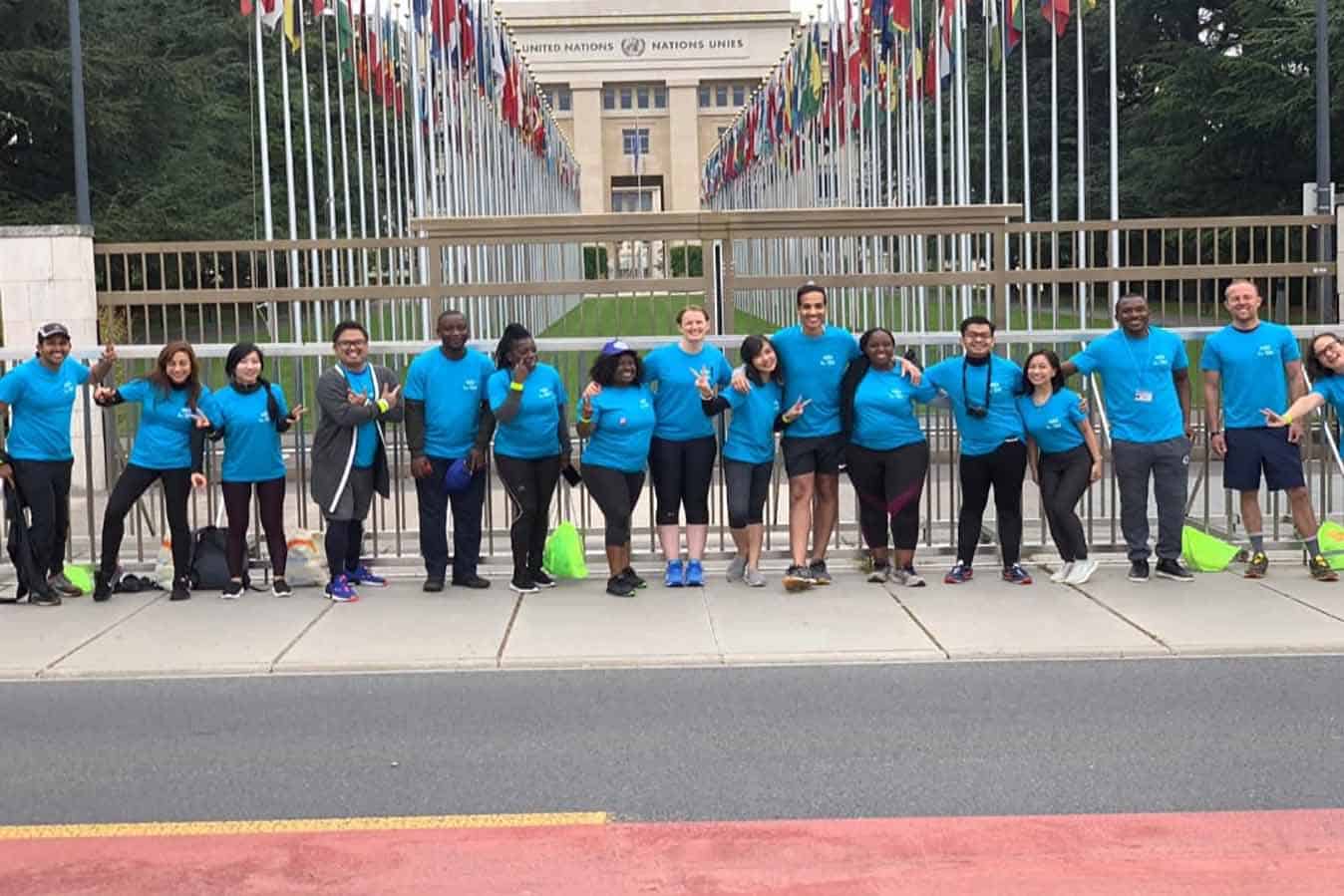“We need to build a robust primary healthcare (PHC) workforce to provide care for those in the community, and to be able to deliver on our commitment to universal health coverage and health for all. This was a commitment made 40 years ago through the Declaration of Alma Ata, recognising that health is a fundamental human right that encompasses a person’s physical, mental and social wellbeing” says primary healthcare nurse Kaara Calma.
In October 2018, Kaara was one of the two Australians selected from over 2,000 applicants to be part of the World Health Organization Primary Health Care Young Leaders Network (YLN), comprising 21 primary healthcare professionals from across the globe. She represented Australian primary healthcare nurses at the WHO Global Conference on Primary Health Care in Astana, Kazakhstan in October 2018. The event celebrated 40 years since the Declaration of Alma Ata was signed in Kazakhstan, and a renewed commitment to ‘Health For All’ through the new declaration, now known as the Declaration of Astana.
An RN, full-time PhD candidate and nursing lecturer at the University of Wollongong (UOW), Kaara recently returned from the 72nd World Health Assembly in Geneva, Switzerland where she spoke on a youth-led panel about primary healthcare in achieving Health For All. One of the seven members from the 21 WHO Primary Health Care YLN to speak at the World Health Organization Headquarters, and the only Australian representative to do so, Kaara raised important concerns about the focus on acute-care in nursing education and training, and the need to see greater recognition of primary healthcare in the undergraduate nursing curricula.
Kaara says she is committed to increasing the visibility of the nursing workforce, having been inspired by the work of many PHC nurses and researchers, and driven by the remaining systemic gaps in PHC.
“Primary healthcare is in growing demand – we have an ageing population, a rise in chronic disease burdens and the reinvigoration of a number of infectious diseases. PHC practitioners are well positioned to increase the awareness of the community about the vast amount of services PHC can deliver: health promotion, disease prevention, treatment, rehabilitation and palliation throughout a person’s lifespan” Kaara adds.

Kaara graduated in 2015 as a Registered Nurse; and after working in acute care, transferred to general practice at the end of 2016. She currently works in general practice at Illawarra Medical Services one to two days a week.
She was awarded the Australian Primary Health Care Nurses Association Recently Graduated Nurse of the Year for 2019. The award recognises a graduated nurse who has recently entered primary healthcare within three years of registration. The award also recognises the recently graduate nurse’s leadership and excellence in the field of primary health, and the nurse’s advocacy for fellow nurses, other health professionals and the community. Kaara’s nomination was based on her work as a general practice nurse and teacher at UOW; her role with the WHO, and her Honours thesis project, ‘An exploration of the experiences of Australian Grey Nomads travelling with chronic conditions’, published in the Australian Journal of Primary Health. Two themes emerged from the research – the need for continuity of care for grey nomads while travelling, and their expertise on the road. Participants interviewed in the study reported encountering a fragmented health system, with challenges regarding finding health services; a lack of shared medical records; and difficulties accessing regular medications.
“Despite these challenges, participants demonstrated health preparedness, an ability to accommodate health on the road, and were all travelling for their health. These were important findings and a major shift from what previous literature have implied, since much of these have looked at the impact of grey nomad travels or their travel patterns and have not truly explored their health experiences” says Kaara.
“Travelling made the grey nomads feel liberated, more autonomous and responsible for their health, and most importantly, confident in their abilities to accommodate their health issues in their day to day lives. Some of the grey nomads I interviewed talked about how they became more resourceful in terms of devising strategies as they travelled to remote, less-resourced areas because they were away from the city.” Kaara adds “There needs to be professional recognition and empowerment of travelling grey nomads to accommodate their health issues on the road.” But Kaara had one important message for health practitioners, particularly those working in primary healthcare. “Health professionals truly need to actively ask patients, particularly older patients about their travel plans. We know that many of our older patients travel, and so these conversations need to happen regularly if we are to ensure that older travellers such as grey nomads are empowered, prepared and healthy.”
Kaara started as a full time PhD candidate in the School of Nursing at UOW in 2018, and was awarded an Australian Government Research Training Scholarship for the duration of her candidature. Her PhD project now examines third year nursing students’ perceptions of general practice as a career option and their preparedness to work in the setting. She shares that “two Australian studies have reported that less than 25% of nursing students say they want to enter primary healthcare nursing [Bloomfield et 2015]. Although we know that the role of nurses in PHC settings is increasingly valued, research to date has focused on strategies to preserve the existing PHC nursing workforce, employment conditions of PHC nurses, and transitioning from acute care to PHC.”
Inconsistencies in the undergraduate curricula and negative perceptions of PHC, including a misconception of PHC as a limiting career pathway in terms of career advancement are barriers to expanding the primary healthcare nursing workforce”, says Kaara. “Universities also face barriers in delivering PHC content”, she adds.
“We need to identify and evaluate the barriers to primary healthcare content delivery. There are a limited number of primary healthcare nurse academics to teach undergraduates, insufficient clinical placements, compounded by expectations of students to learn acute care nursing.”
“Many undergraduate nursing curricula remain acute-care centric where PHC is often only just embedded within broader health units”, says Kaara. “As a consequence, it is seen as more of a concept than a viable career pathway. This is detrimental to the recruitment of new nurses into this area.”
“Considering the importance of a strong PHC nursing workforce to meet the growing demands and complexities of chronic disease care, there is a need for immediate action regarding the preparation of nursing graduates for PHC employment following graduation.”
Reference
Bloomfield, J.G., et al., Nursing students’ intentions to enter primary health care as a career option: findings from a national survey. Collegian, 2015. 22(2): p. 161-167.








